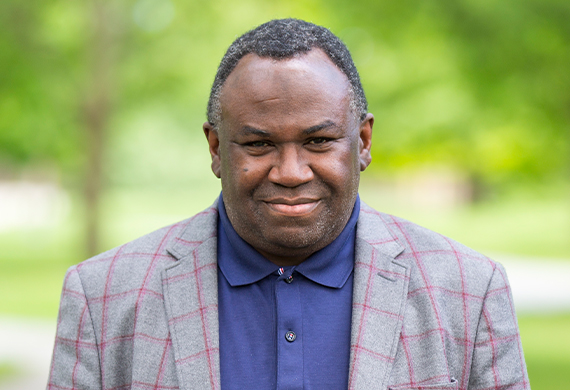New Books From Marist Authors
Four new books by Marist authors explore a wide range of topics.
Sean Sammon, FMS, is a Marist Brother and member of the Board of Trustees currently serving as the College’s Scholar in Residence. A licensed clinical psychologist, Sammon has had a longstanding interest in the impact of alcoholism.
“Alcoholism touches a great number of families,” said Sammon. “And often the family members have difficulty discussing the issue with people outside of the family.” As children of alcoholics grow into adulthood, they naturally bring some of their coping behaviors with them. Sammon was interested in expanding “the understanding that alcoholism is not just impacting the alcoholic.” He also noted that very little new writing has been published on the topic since the 1980s.
These factors led Sammon to extensively update his book, Alcoholism’s Children, this year to include more general advice and also to hone in on the types of behaviors adult children of alcoholics commonly exhibit. In short, the book “provide a simple and straightforward explanation of the difficulties adult children of alcoholics face and what they must do to recover.”
Originally written for those in the priesthood or religious life, Sammon has revised the book to benefit a general audience. Chapters examine issues such as defining alcoholism as a disease, roles in addicted families, and looking at the process of recovery.
Alcoholism’s Children is available from Amazon.
Janine Larmon Peterson, Associate Professor of History, sums her new book up in one sentence: “Suspect Saints and Holy Heretics focuses on how religion was used for political dissent in 13th- and 14th-century Italy.”
Peterson spent years researching the topic and, thanks to the Marist Florence Summer Research appointment through the Office of Academic Affairs and funding from the National Endowment for the Humanities, she was able to complete the work. The book, targeted to other researchers and graduate students, examines unusual saints’ cults that people participated in despite the punishment the church could—and did—impose.
Peterson was drawn to the subject because she’s committed to including more marginalized voices in her research, as she does in her teaching. “I see these stories connecting for historians in interesting ways. We know the ways in which those in power make laws, but it’s important to examine people who are left out of many history books and see what they did to challenge those laws and recognize their agency,” said Larmon. “My research showed a surprising amount of collaboration between laypersons and local clergy to challenge the authority of inquisitors and the Church.”
Suspect Saints and Holy Heretics was just published this month by Cornell University Press and is available from Amazon.
Professor of History Michael O’Sullivan’s book, Disruptive Power, is a study of a revival of faith in miracles among German Catholics in the 20th century. “During the 1920s to the 1950s, there was a major upswing in faith in miracles in Germany,” O’Sullivan explained. “It’s all the more interesting because Germany is a very secular country and was already moving in that direction during that time, so this is an unknown piece of history.”
The book chronicles, among other stories, Therese Neumann (she’s on the cover) and her claim to have the stigmata. “She had a powerful circle of followers that included theologians, cardinals, politicians, journalists, monarchists, anti-fascists, and everyday pilgrims who actually came to see her bleed.”
At the backdrop, of course, are some of the most dramatic events of the century: Germany’s defeats in World War I and World War II, the repression of the Third Reich, and the early years of the Federal Republic. The topic directly ties into O’Sullivan’s teaching at Marist. “I incorporate a great deal of religious history in my modern European history courses covering Christianity, Islam, and Judaism.”
Although the book is certainly aimed at an academic audience, anyone with an interest in Catholic history would enjoy it, noted O’Sullivan. The book was recently awarded the prestigious Waterloo Centre for German Studies Book Prize. The prize was established to “recognize first-time authors whose scholarly work provides a substantial contribution to our understanding of any aspect of German-speaking society.”
O’Sullivan’s research was funded by the German Academic Exchange Service and the American Council on Germany’s Hunt Fellowship. The book is published by the University of Toronto Press and is available from Amazon.
Associate Professor JoAnne Myers’s new book, The Good Citizen: The Markers of Privilege in America, provides a way of “looking at citizenship and power.” She wrote the book with a wide audience in mind: political theorists, policy makers, and the general public. The idea began for her in 2009. The intersectionality movement had taken hold and was growing; she knew she wanted to take that a step further and find a new way of looking at the concept of citizenship.
Using political theory, Myers examines five components of privilege that have come to define levels of citizenship in the United States: patriotism, property rights, participation, productivity, and reproduction. Myers teaches political theory at the College. “In the United States, we think of citizenship in principle as democratic, but citizenship is not just a binary status: norms, policies, and laws can mark some citizens as ‘other.’”
What interested her was how people become second-class citizens or even non-citizens as Jews in Germany did. “Laws that effectively made Jews non-citizens in Nazi Germany did not happen at first so that others were aware,” said Myers. “In fact, the first such law was purported to be about ‘animal rights’ but, in fact, only targeted Kosher butchers. When no one but the Jewish people who were affected objected, it signaled the beginning of an, at first, slow chipping away at rights. But, it eventually resulted in Jewish people losing their citizenship, and their humanity.”
Ultimately, Myers hopes her book shines a light on how laws impact citizenship and that it spurs conversations about how to treat all people with dignity.
The book is published by Routledge and is available from Amazon.



